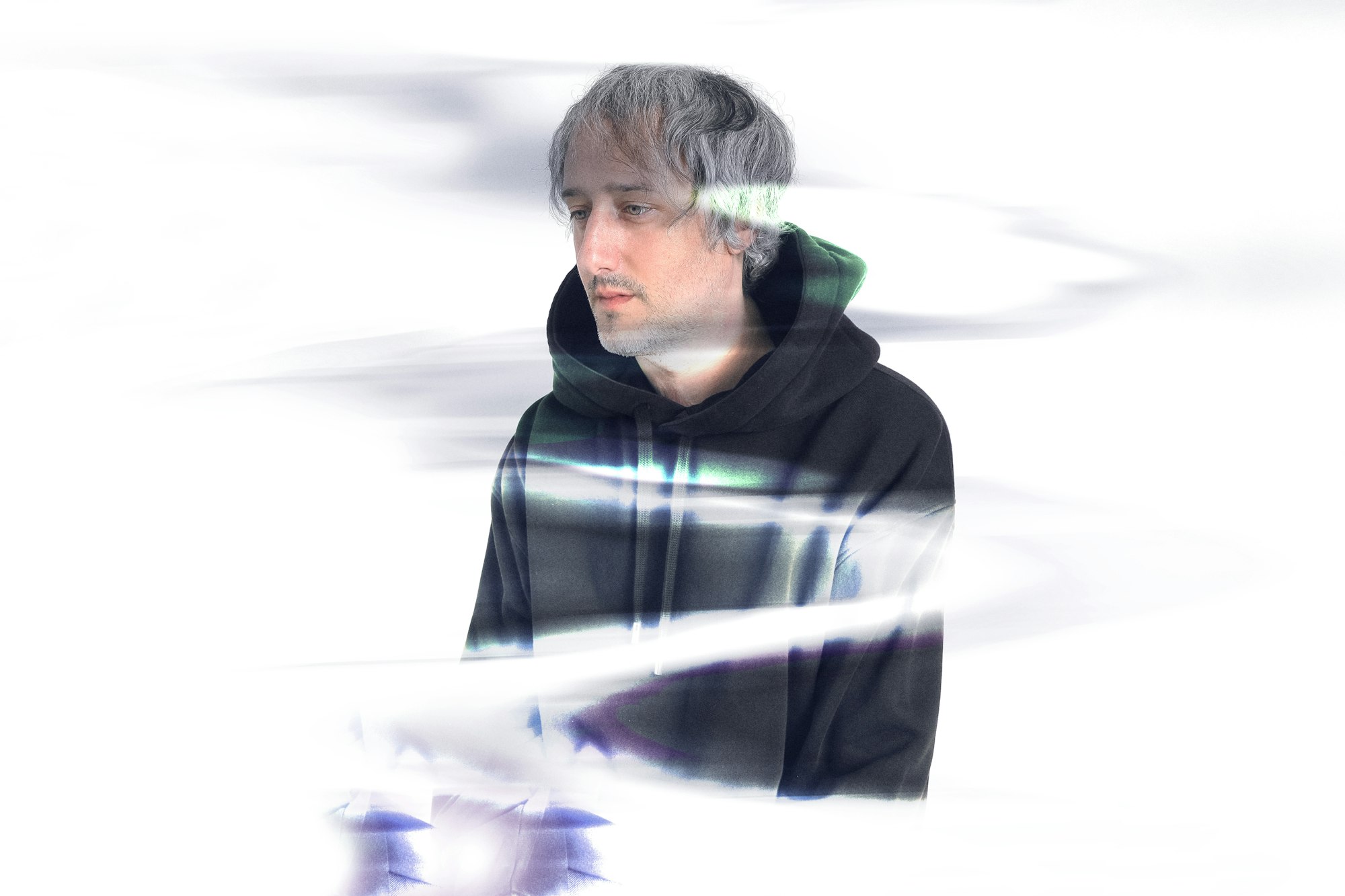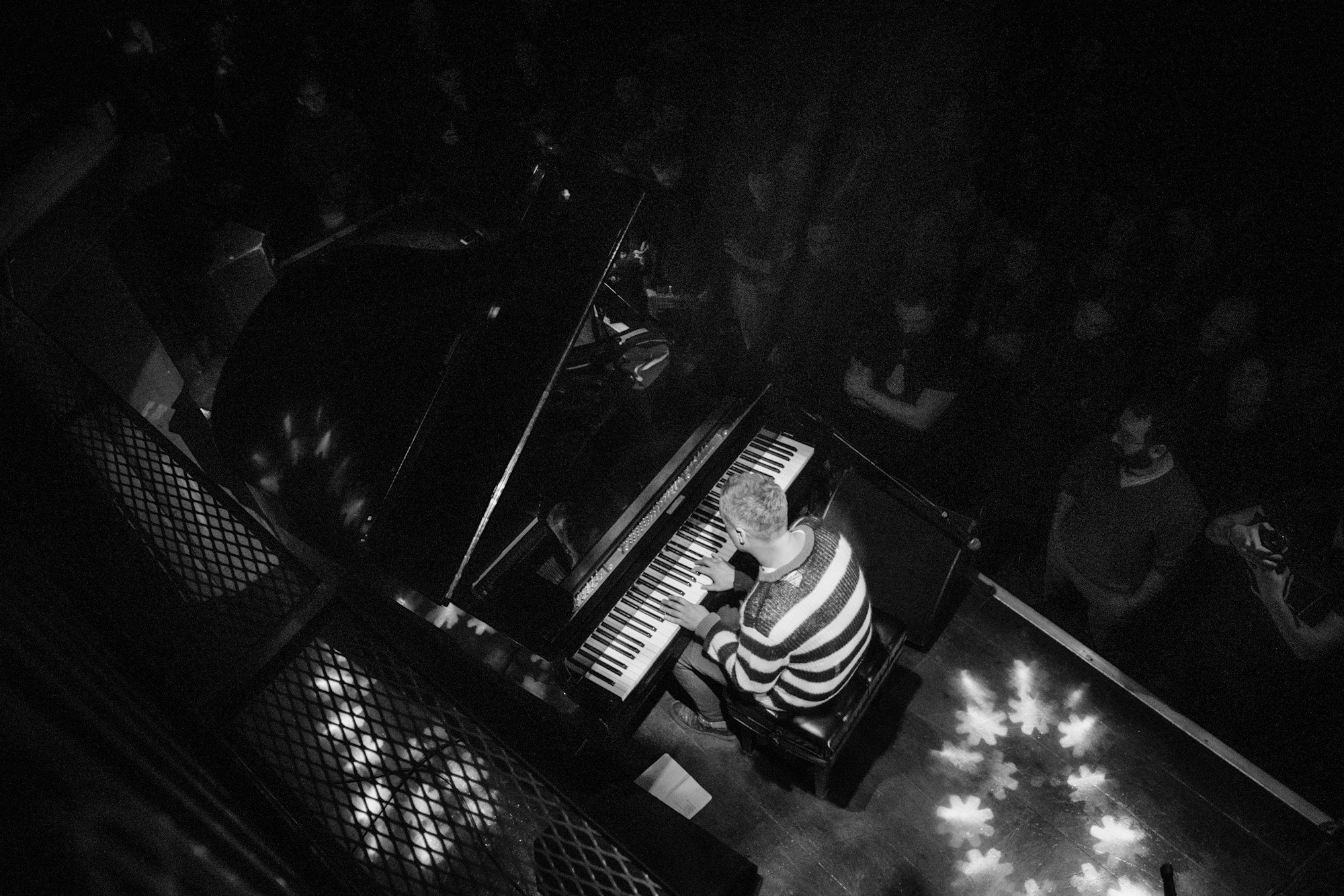Words by Tina Edwards
The very fact that I’m talking to pianist James Heather about his new album, Invisible Forces, is somewhat a miracle. But we’ll get to the “why” later.
Heather’s sound is sensitive to ambient, orchestral and post-rock. Dismissing the use of a metronome means that Invisible Forces moves at variable tempos; something the pianist refers to as ‘pulse music’. His use of dynamic variation is a stand-out feature, drawing inspiration from the quiet-loud of verses and choruses in tracks by the likes of Nirvana and The Pixies. Heather’s music might feel more than a stone’s throw away from 90s rock, but with the piano-forte as his instrument of choice, the coordinates are closer than might be first perceived.
Invisible Forces is the sophomore album from Heather, whose debut Stories From Far Away on Piano garnered critical success from fans and tastemakers alike. I plan to ask him about second album nerves, but the stories that he has to share distract me from conventional lines of conversation.
I went to every piano shop in London that I could find - I would play every piano in the room and take notes.
Heather has drive. He tested more than a hundred pianos in search of the perfect sound, landing on a Viennese Bosendorfer built in 1913. It’s the only instrument used on his album, amplified by recording interchangeably with a pair of C414 XLS and a pair of Extinct Audio BM9 Ribbon Microphones. Through this minimalist approach, he finds a way to bring complex stories to life on Invisible Forces.
“I went to every piano shop in London that I could find - I would play every piano in the room and take notes”, says the south coast native, sitting in his garden studio, in front of his childhood piano. “I was honing in on this Bosendorfer sound; it's got a little bit more bottom end and presence and atmosphere attached to it, over some other pianos which are more twinkly and classical”. He bought it within a minute of taking the stool.
The piano he found was at the workshop of Piano Restorations in Twyford. The instrument had been restored inside to the original specifications and he brought it back to his home, just as the pandemic was dawning.

Timing is everything. In 2008, Heather had a collision on his bicycle - with a 5% chance of survival.
“I was cycling home and a cement mixer clipped my wheel. They dragged my bike underneath and out the other side, mangled up. My body got caught either under or between the two front wheels… obviously, I can’t totally remember what happened”, says Heather. “I slowly got dragged down the road, at least 20 metres”.
Pointing to his jaw, he explains how one side of it is now metal. “And then I lost all my skin from here to like down here”, motioning across his body. “I was lying down looking at the sky with a crowd of people around me, losing consciousness. My vision was going dark from the outside in. I think that’s what people mean about “the tunnel”. He explains that when he awoke from a coma at Royal London hospital, days after the incident, his jaw was wired shut, and he was breathing with a tracheotomy. He shows me a faint scar on his neck. “I got pneumonia and all I remember really is a lot of darkness for the first few weeks”.
Heather finally left the hospital after “a month or two”, initially in a wheelchair, before he began to rebuild his strength. “Then I was on a bit of a manic high for a year or two - because I lived”. Carefully, he considers his next words: “ Then some things happened in my brain - I changed as a person, ultimately for the better”, says Heather. “It gave me some new depth and empathy for people but it’s also been a struggle; it brought out a lot of anxiety. I used to often think that something bad is going to happen… I had to really dig deep into my strength of mind to remain mentally healthy”.
Empathy underpins the album. The leading single Hidden Angel is a letter of forgiveness to the driver. Its light ostinato melody meets with chords on the far left keys evoking a sense of duality; tension and relief. Heather has been unable to track the driver down, to tell him that despite the odds, he lived. His music has been an outlet.
“What I'm trying to get into now - especially when I do live gigs - is to articulate meanings of songs so that people can connect with them. For many years, I bottled up a lot of emotion. And now I'm trying to be emotionally fearless with my art because there's nothing to be ashamed about in talking about feelings. I think that's what people really want from artists; they want to be opened up to”.

Piano has been the instrument of choice for Heather since he was a child growing up in Southampton, with access to be inspired by musical figures. His father, a former Navy man, was also musically inclined; he used to help run a club called The Brook, enabling this young and curious boy to meet musicians who were passing through, including Captain Sensible from the Damned and Hugh Cornwall from The Stranglers.
When he was growing up it was his grandfather who inspired him whilst sitting at the keys: “My granddad was teaching me compositional ways to change key and compose. I also used to sit with him when he’d take apart the piano and manipulate piano tunings with the strings”. Heather was also conscientious with his practice. “I didn't want to annoy my family so I would play quietly and try to pique their interests”, he says. It seems for reasons like these, the term ‘background music’ causes him no offence. “Who am I to judge if someone is getting stuff emotionally out of listening to music in the background, or using music to aid sleep. For me personally however, I don’t listen to music that way, ideally, I want my music to be in the foreground.”
For many years, I bottled up a lot of emotion. Now I'm trying to be emotionally fearless with my art because there's nothing to be ashamed about in talking about feelings.
As for his formal training, Heather reached grade 6, before stopping lessons at the age of 15. “I was more excited to play my teacher something I'd made up”, he says. “I got the basic fundamentals of playing then went my own way. I think you either sink or swim; you’ll never be accepted in the classical world because you haven’t been to the Royal Academy or something. You have to try and make it in a more DIY, indie space”, he muses. “My journey was long; maybe 22 years later, I put out my first release. I never stopped playing. In those 22 years, I played as passionately as I do now”.
That passion is evident in Invisible Forces, an album that Heather describes as “tapping into the things around us that you might not immediately see”. Each track carries weight and a sense of audible purpose. That’s particularly true of ‘Balance’.
“My dad got a brain tumour and he lost his balance for ten months. He had no sense of standing really, and I've never even thought of balance. Really, I just took it for granted”, he shares. “It made me think about the senses. We often talk about the five senses, don't we? But there's probably up to a hundred of them… we haven't explored them as much as we could”.
The striking album artwork, by long-time collaborator Suki, is a representation of the many invisible layers of our inner and outer worlds. Three stacked cups appear to reveal an orb, against a twilight shade of mauve.
“I was reading this thing”, says Heather, contemplating concepts and observations that have inspired the album. “Birds have this mineral on their beaks called magnetite that makes them know which direction to fly in. I'm fascinated by things like that, in terms of feeling our innate connection to the world. There's all this amazing stuff going on around us that at first glance, you don't notice because you're wrapped up in your life, but there’s so much to explore”.
Invisible Forces feels like a memoir record, so personal as it is in its concept. Yet, as only the pianist's second album, there’s plenty more to come. I can’t help but ask what that might look like.
“I’ve got ideas but at the moment, I want to have a big break. I want to go off-grid for a while. I want to destroy everything I've learned if that makes sense. This music I've just done is really linked to my life so far and my childhood, my first instrument…I almost want to destroy that and do something really bold - if that feels right to me”, Heather says, as if motioning to a point on the other hand. “The piano is who I am. I just want to just go offline for a while and think about what the next message is".
